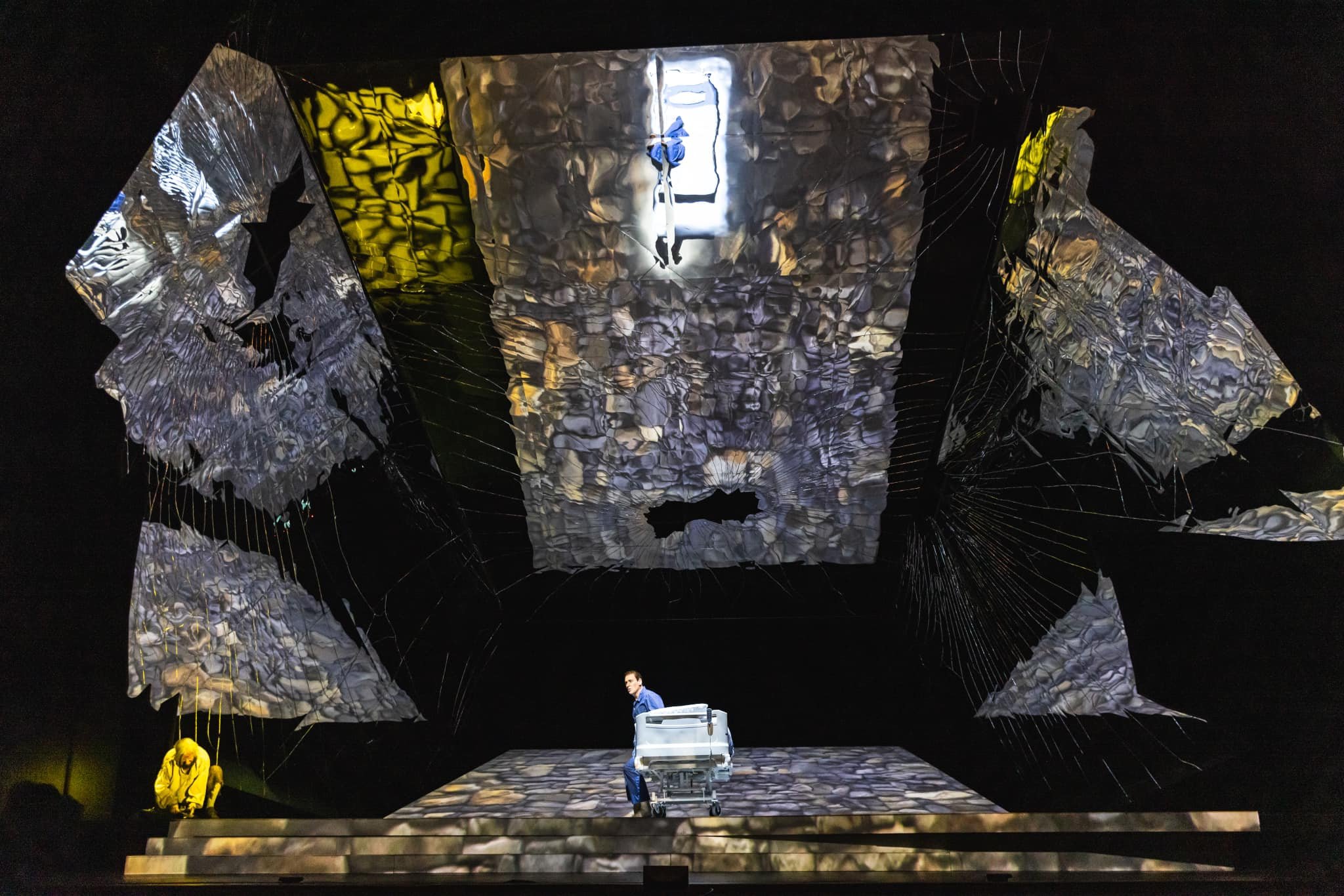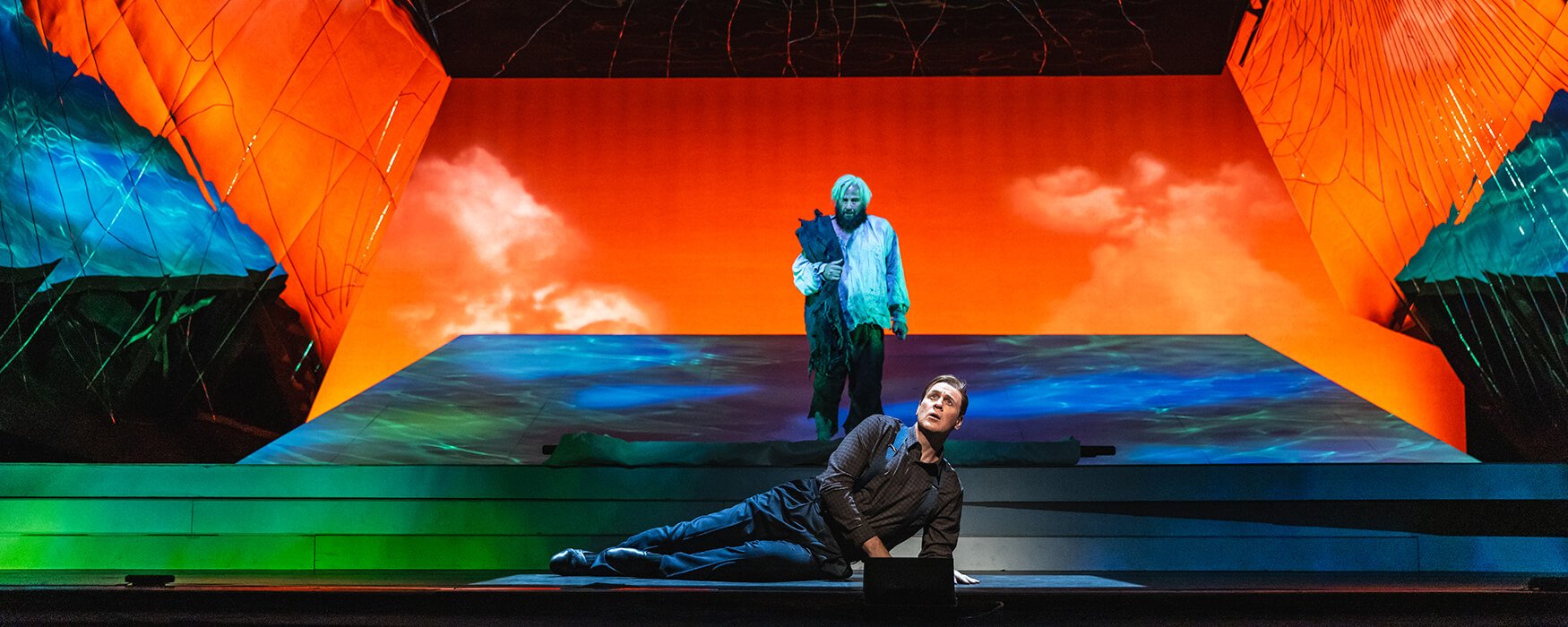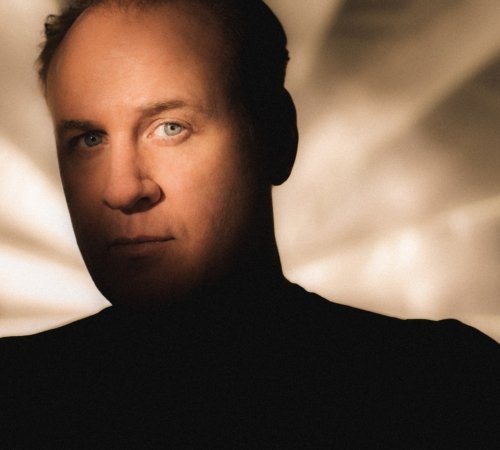‘The Diving Bell and the Butterfly’ @ The Dallas Opera
Photos by Kyle Flubacker
—Wayne Lee Gay
The world has a new operatic masterpiece, introduced on Friday night by The Dallas Opera.
For their second opera (the first was Everest), British composer Joby Talbot and American librettist Gene Scheer take on Jean-Dominique Bauby's shattering memoir The Diving Bell and the Butterfly. This is no ordinary book-to-opera project. Bauby, a prominent French journalist (and editor of the French fashion magazine Elle) suffered a massive stroke at the age of 43, as he was driving a new BMW through the French countryside with his young son. He emerged totally paralyzed, unable to move or speak.
During Bauby’s eighteen months of hospitalization before his death in 1997, he wrote—communicating and dictating by blinks of his one good eye—a 130-page narrative which has been called, with good reason, "the most remarkable essay of our time—perhaps of any time."
From Bauby's extraordinary document of life trapped in a paralyzed body, librettist Scheer fashions a testament to the invincibility of the human spirit. While necessarily trimming some key elements from Bauby's narrative—an inevitable part of any book-to-opera (or book-to-movie or book-to-play) transition—Scheer wisely picks up on and expands Bauby's numerous and prominent allusions to Dumas' The Count of Monte Cristo, appropriating the character of Abbé Faria from the novel as a ghostly illusion and counter-ego to interact with Bauby.
While Scheer uncovers the opera libretto lurking inside Bauby's narrative, composer Talbot illuminates Scheer's words with a gloriously imagined, immaculately crafted musical score. From the arrestingly noisy opening bars, this operatic realization soars through a seamless succession of arias and ensembles, each offering tremendous vocal and dramatic challenges.
As the central character Bauby, baritone Lucas Meachem conquers that role's tremendous physical challenge—sometimes singing while reclining or flat on his back, at other times rising in flashbacks to his life before the stroke. Vocally, he succeeds in a role that takes him to extremes of pitch, volume, and emotion. Stunning scenes abound: Bauby recalls, with sheer poetry, the odor of onion and garlic cooking in butter. Later he tells us that, though paralyzed, "Your mind can fly through the air like a butterfly."
Early on, tenor Richard Croft as Abbé Faria blends magnificently with Meachem in a beautifully conceived, lavishly accompanied duet describing, in Bauby's serenely sensuous words, the wonder of simple pleasures. Mezzo-soprano Sasha Cooke fulfills, with a richly confident tone, the role of Sylvie, Bauby's former partner and mother of his children—a complicated love interest subtly in conflict with Bauby's other relationships, with the amanuensis Claude (soprano Deanna Breiwick), and with the therapist Sandrine (soprano Andriana Churchman). These women come together for an emotional highpoint—a trio built on direct quotations from Bauby's book.
Bass Kevin Burdette conveys hopeless confusion and unconditional love as Bauby's aging father. Soprano Jocelyn Hansen brings jazzy energy as Bauby's assistant in a scene in which he imagines himself in his previous role as a powerful magazine editor. Tenor Andrew Bidlack portrays a callous but competent doctor. All three of these supporting roles are brought off with unerring vocal precision and dramatic characterizations. Ava Jafari and Austin Howarth, both 11, provide a splash of energy and appropriate pathos as Bauby's children.
Conductor Emmanuel Villaume brings the complex intertwining of voices and orchestra together winningly, establishing what will hopefully be a strong tradition for this work in the international operatic repertoire. Director Leonard Foglia creates a sense of ordinary humans faced with terrible circumstance; designer Elaine J. McCarthy's high tech, largely abstract set and projections build an overwhelming tide of emotion ranging from horror to transcendence—all of it in keeping with a true story of tragedy and triumph.
WHEN: November 3, 5, 8, and 11, 2023 (livestream November 11 on TDO’s YouTube channel)
WHERE: Winspear Opera House, Dallas Arts District
WEB: dallasopera.org


